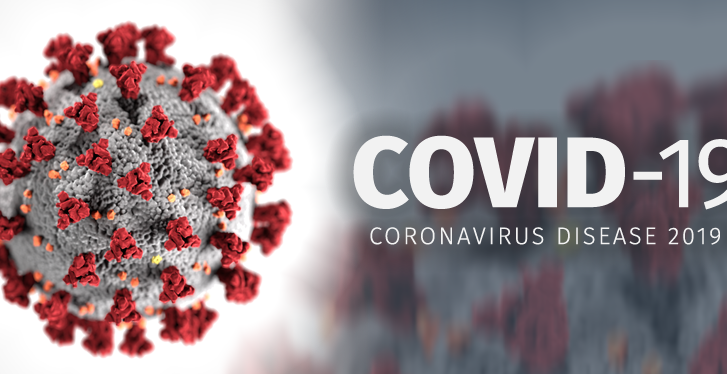Coronavirus: Panic vs. Preparedness, Plus Some Perspective
The storm is coming, so you need to stock up on supplies: candles, batteries, plywood . . . oh, wait; that’s for a hurricane. But our concierge family practice doctors at MD 2.0 in Jupiter want you to think of the coronavirus in much the same way. As with hurricanes, the coronavirus can be deadly. But also like a hurricane, there’s no need for panic. Just some information, some perspective, and some common-sense measures to prepare for the coming outbreak here.
Coronavirus vs. its cousins
While people are dying from the coronavirus (officially known as COVID-19), it’s important to put this particular illness in some perspective. It’s too early in the outbreak to have definitive figures regarding the death rate, but at this point, it appears that COVID-19 kills an average of two percent of those who contract the virus. That figure approaches 15 percent of those over age 65.
Because COVID-19 is a new infection, about which much is still unknown, it’s even possible that the death rate is much lower than these numbers indicate. That’s because many of those who have been infected exhibit very mild symptoms, and these people aren’t being tested and diagnosed. So the infection-to-mortality rate could be far lower.
In contrast, the SARS virus had a death rate of 10 percent, while the MERS death rate was estimated at between 30 and 40 percent. Influenza typically has a .1 percent fatality rate.
When comparing actual deaths, however, the flu so far is still far more deadly. The World Health Organization (WHO) estimates the flu kills 650,000 people globally every year. To date, COVID-19 has killed about 3,000 people worldwide. In the U.S., that figure stands at two, vs. 16,000 for this season’s flu, including 105 children who have died.
Mindless panic creates more problems
We don’t mean to downplay the possibility that the coronavirus could become a worldwide emergency because viruses are notoriously difficult to control. And, unlike with the seasonal flu, a reliable vaccine is at least a year to 18 months away.
But the panic we’ve seen, especially online and in social media, is unnecessary and counterproductive. Already, the panic-buying of face masks has not only led to price gouging but a shortage of masks for medical workers who need them, unlike the general public, which doesn’t (as we explained in “Face Masks vs. the Coronavirus? Maybe Not”).
Sensible measures
So what is a calm, measured response to the coronavirus?
- Keep your perspective
At this point, you are far more likely to contract seasonal influenza than you are COVID-19. If you haven’t had your flu shot yet, it’s still not too late, and this season’s version appears to be highly effective against the circulating strains.
- Make sensible plans
It is possible that the coronavirus will become widespread in the U.S. It’s been found on every continent except Antarctica, and seems to spread quite readily. If you should contract it, you may be subject to self-quarantine for as long as two weeks. So prepare as you would for a hurricane: have enough food and supplies on hand, including for pets, to last two weeks, as well as a three-month supply of medications for any chronic illnesses you have.
- Take the usual precautions
To avoid contracting the coronavirus—or any virus—make it a practice to:
- wash hands thoroughly with soap and water for at least 20 seconds after using the toilet, sneezing, or blowing your nose
- be sure to include fingertips, tops of hands, and beneath nails
- if relying on hand sanitizer, make sure it contains at least 60 percent alcohol
- avoid touching your eyes, nose, and mouth when out in public
- avoid contact with sick people
- cover your mouth when you cough and sneeze
- disinfect objects and surfaces frequently using a regular household cleaning spray
- remember that antibacterial cleaners kill bacteria, not viruses
Know the signs of the coronavirus, and contact us immediately if you suspect you have it:
- fever
- cough
- shortness of breath
As you can see, these are also symptoms associated with the flu and pneumonia. At this point, the likelihood that you have COVID-19 is slim, at least until the virus becomes more widespread.
Be aware that most of those infected with the virus have mild symptoms that do not require hospitalization, treating it at home as they would a severe cold or the flu.
- Ignore non-vetted sources of news
If you get a tweet or a Facebook post that terrifies you, chances are excellent that it’s wrong. Stick to the local and major networks and newspapers for coronavirus information. Although their coverage of the disease still tends a bit toward the breathless, in general, they are all providing the latest reliable information from scientists.
The Centers for Disease Control and Prevention (CDC) has a website (https://www.cdc.gov/coronavirus/2019-nCoV/summary.html) that provides regular updates about the coronavirus, as does the Florida Department of Health http://www.floridahealth.gov.
And contact us if you have any questions. We are your concierge family doctors, and you pay us for ‘round-the-clock access to our expertise, so don’t hesitate to use it.

